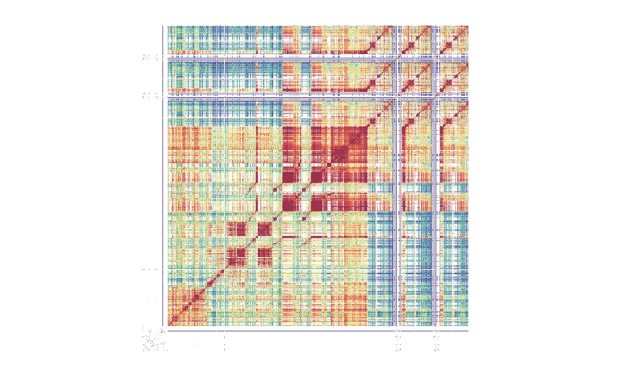Sustainability from versatility
- 18 November 2022
- 3 minutes
Versatility of thought and thinking about the future by learning from the past has shaped the career of Lauren Smart (Archaeology and Anthropology 1996).
Lauren is Chief Commercial Officer across the sustainability businesses of S&P Global, having joined as part of the international firm’s 2016 acquisition of Trucost, a pioneering environmental economics boutique.
“When I graduated there was no such thing as sustainable finance. It didn’t exist. The term ESG – environmental, social, governance investing – that wasn’t a thing at all,” says Lauren, who went into mainstream finance and then completed an international development masters at the London School of Economics.
“How did Archaeology and Anthropology help me to get to where I am? The key thing is versatility of thinking. It’s arts and sciences. It’s thinking about the future from looking at the past.
“It’s about what makes us human, what unites us over time and space. This multidisciplinary aspect is key when we’re thinking about massive issues such as climate change and how to mobilise public and private sectors.
“You have to build teams of people from different disciplines with a diversity of thought and to be agile in your thinking, to be able to think creatively.
“It’s a fascinating part of finance because you get so many people from different backgrounds. That’s where the alchemy happens.”
Lauren leads a team of 150 people, bidding to grow sustainability practice, change the allocation of capital and capital markets to more sustainable decision making, and to consider impacts on climate, people, planet and profit with decision making.
“The impact on the world is by scaling up our revenues, so if we’re able to do that in a way that’s helpful for clients and aids client decision making, then we’re better able to affect the flows of capital into more sustainable parts of the economy,” she adds.
It is not as simple as encouraging divestment from fossil fuels, she says.
Lauren adds: “It’s fantastic people are campaigning and calling out areas of the economy, including finance and public policy, to try to make things happen faster. But as with many things it’s much more complex than black and white.
“There is a strong argument that if you just divest of those companies then you are beginning to cut off capital from the companies that you most need to move and change. You may also leave those companies exposed to only being able to get capital from those investors that don’t care. It could have a counter-productive effect.
“The short answer is we need to bring some parts of the older economy with us on a journey of evolution and change, so that they’re better placed to serve us as a society in a newer most sustainable economy going forwards.”
Accusations of greenwashing which prompted the implementation of legislation by regulators and governments has been a positive change, Lauren says.
“It adds robustness and credentials to the whole market, rather than being in a situation where it is all undermined,” she says.
Lauren’s experience of COP27 in Egypt this month was a positive one and she was pleased to see nature on the agenda alongside climate, plus the discussion of technological innovations which can contribute to climate targets.
“The mood music was that it’s still possible to achieve net zero by 2050, but realistically the chances of that happening are getting slimmer,” she adds.
As a graduate of archaeology and anthropology, Lauren is aware perhaps more than most of the passage of time. She is grateful for her experiences at Caius.
She adds: “I loved my subject. I feel privileged to have studied something so fascinating. I had incredible supervisors. Professor Sir Paul Mellars (a Fellow at Corpus Christi) was my main supervisor for my thesis, such an inspiration and so generous with his time.
“And I have lasting friendships as well to complement that.”


